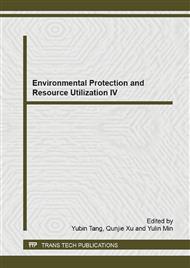p.474
p.479
p.484
p.489
p.495
p.500
p.504
p.513
p.517
Evaluating the Environmental Cost Internalization Based on the Fuzzy Neural Network
Abstract:
Internalization of environment cost assessment measures the level of an enterprise’s environmental cost internalization. It’s also the basis of carrying out recycling economic in an enterprise. First of all, we established an environmental cost analysis model, in line with which we build the internalization of environment cost index system. Then adopting comprehensive evaluation method basing on fuzzy neural network can help us assess the effect brought by the internalization of environment cost. Finally, we conducted an experiment which comparing fuzzy neural network with the fuzzy evaluation of environment cost objectively. So we can think it’s an effective method.
Info:
Periodical:
Pages:
495-499
Citation:
Online since:
December 2014
Authors:
Keywords:
Price:
Сopyright:
© 2015 Trans Tech Publications Ltd. All Rights Reserved
Share:
Citation:


